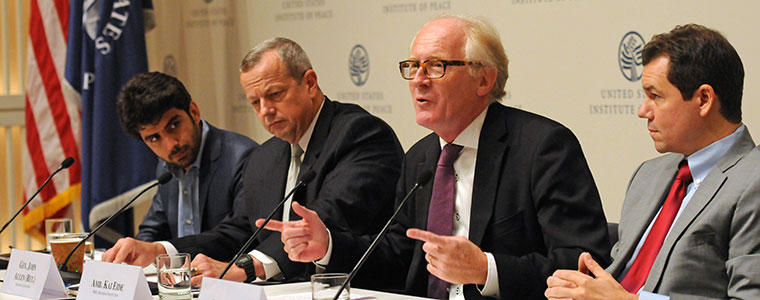The Legacy of President Hamid Karzai
Read the Event CoverageThe U.S. Institute of Peace hosted a public discussion with four distinguished panelists as they examined Hamid Karzai’s controversial presidency.

Even as the Afghan election remains mired in the messy work of sorting out good votes from fraudulent, President Karzai has set August 2 as the inauguration date of the next president. On this day Karzai will conclude his term as Afghanistan’s chief executive, a position he has held since December 2001. President Karzai’s relationship with the United States has gone from mutual trust and high-hopes to misunderstanding and frustration, ending in antagonism and bitterness. As Karzai prepares to step down from power, what sort of country is he handing over to his successor? What obstacles did he face when he took over Afghanistan in 2001, and how did he overcome them?
USIP hosted four distinguished panelists to explore answers to these questions from various perspectives, offering their own verdicts on what is likely to be a long-debated question.
Read about the event and continue the conversation on Twitter with #KarzaisLegacy.
Speakers
General John Allen (Ret.)
Distinguished Fellow, Foreign Policy, Brookings Institution
Former Commander of NATO International Security Assistance Force and U.S. Forces in Afghanistan
Ambassador Kai Eide
PRIO Visiting Fellow, Brookings Institution
Former United Nations Special Representative to Afghanistan
Mujib Mashal
Afghan Journalist
Author, “After Karzai”, The Atlantic
Scott Smith, Moderator
Director, Afghanistan & Central Asia Programs, USIP



